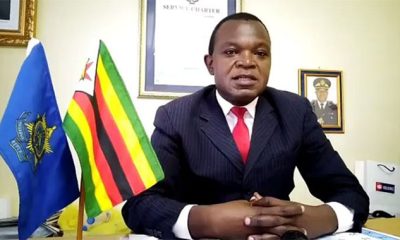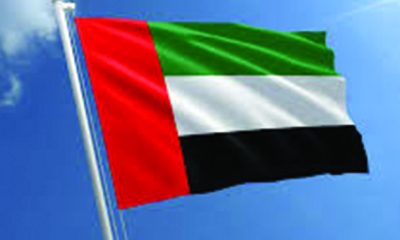It was a moment many South Africans never believed they’d live to see. On 10 May 1994, Nelson Mandela was inaugurated as president of a democratic South Africa, ending the deadly and brutal white minority apartheid regime.
To mark 30 years since South Africa’s post-apartheid transition began, The Conversation Weekly podcast is running a special three-part podcast series, What happened to Nelson Mandela’s South Africa?
In the first episode, two scholars who experienced the transition at first hand reflect on the initial excitement around Mandela’s election, the priorities of his African National Congress (ANC) in the transition and the challenges that lay ahead for South Africa as it set out to define its post-apartheid future.
In the months leading up to South Africa’s 1994 elections, Steven Friedman was seconded to work in the monitoring division of the Independent Electoral Commission. It was a tense period, he remembers:
The actual experience of working in the commission was incredibly challenging, I think, for everybody involved, and quite scary at times … I remember looking down from my office at the street where large numbers of Inkatha Freedom Party members were marching in an attempt in effect to stop the election, and wondering whether they were going to storm the building.
The Inkatha Freedom Party didn’t storm the building, but there was a lot of pre-election violence and an estimated 20,000 people were killed.
Today, Friedman is a professor of political studies at the University of Johannesburg and an expert in South Africa’s political transition. In his work, he’s argued that the role of the ANC in overthrowing apartheid has been overblown.
To be blunt, the ANC didn’t liberate the country … it was a combination of a variety of factors … I’m not saying they played no role at all, but I think it was common among ANC people at the time, and I think remains part of ANC mythology, to vastly overestimate the ANC’s role in internal resistance.
Friedman says it’s “easy to romanticise” Mandela, but he stresses he was hugely important in the transition.
Mandela played a huge role at the time, but he’s not coming back. And as long as we expect somebody like him to come back, we remain in a cul de sac … The downside to the Mandela phenomenon is that we spent a lot of time over the last 30 years, particularly when things got bad, really blaming the fact that the Messiah is no longer here.
A new kind of security
One of the biggest challenges facing the new ANC-led government after 1994 was reform of the security services, which had enforced the brutal apartheid regime under a highly militarised state. Sandy Africa, an associate professor of political sciences at the University of Pretoria, explains that “violence had been so integral to upholding the apartheid system.” A former student activist and ANC member, Africa was brought into the new ANC administration as head of a training facility called the Intelligence Academy.
By the time that the 1990s arrived, there began to emerge a consensus that in a democratic society, the security forces would have to play a very different role. That was certainly not a repressive one, but one where they really served as protectors of the people and their rights and their interests.
Africa says that there were real fears that the security forces would reject the changes. “If there was going to be a coup from any quarter, it would have been from that quarter,” she says, but in the end “the enlightened forces prevailed”.
Fears of those who thought that they had too much to lose were assuaged by sunset clauses – essentially promises that they would have relatively soft landings, that there would be no retribution for the atrocities committed under apartheid, and that, in fact, reconciliation would be the order of the day, rather than anything else.
Listen to interviews with Steven Friedman and Sandy Africa on The Conversation Weekly in the first episode of our What happened to Nelson Mandela’s South Africa? series.
A transcript of this episode will be available shortly.
Disclosure statement
Steven Friedman and Sandy Africa do not work for, consult, own shares in or receive funding from any company or organisation that would benefit from this article, and have disclosed no relevant affiliations beyond their academic appointment.

Sign up for free AllAfrica Newsletters
Get the latest in African news delivered straight to your inbox
Credits
Newsclips in this episode from SABC News and AP News.
Special thanks for this series to Gary Oberholzer, Jabulani Sikhakhane, Caroline Southey and Moina Spooner at The Conversation Africa. This episode of The Conversation Weekly was written and produced by Mend Mariwany, with production assistance from Katie Flood. Gemma Ware is the executive producer. Sound design was by Eloise Stevens, and our theme music is by Neeta Sarl. Stephen Khan is our global executive editor, Alice Mason runs our social media and Soraya Nandy does our transcripts.
You can find us on Instagram at theconversationdotcom or contact the podcast team directly via email. You can also subscribe to The Conversation’s free daily email here.
Listen to The Conversation Weekly via any of the apps listed above, download it directly via our RSS feed or find out how else to listen here.
Gemma Ware, Head of Audio
Thabo Leshilo, Politics + Society

 Business5 months ago
Business5 months ago
 music2 weeks ago
music2 weeks ago
 travel3 weeks ago
travel3 weeks ago
 money markets2 weeks ago
money markets2 weeks ago
 gospel2 weeks ago
gospel2 weeks ago
 gospel2 weeks ago
gospel2 weeks ago
 gospel2 weeks ago
gospel2 weeks ago

















